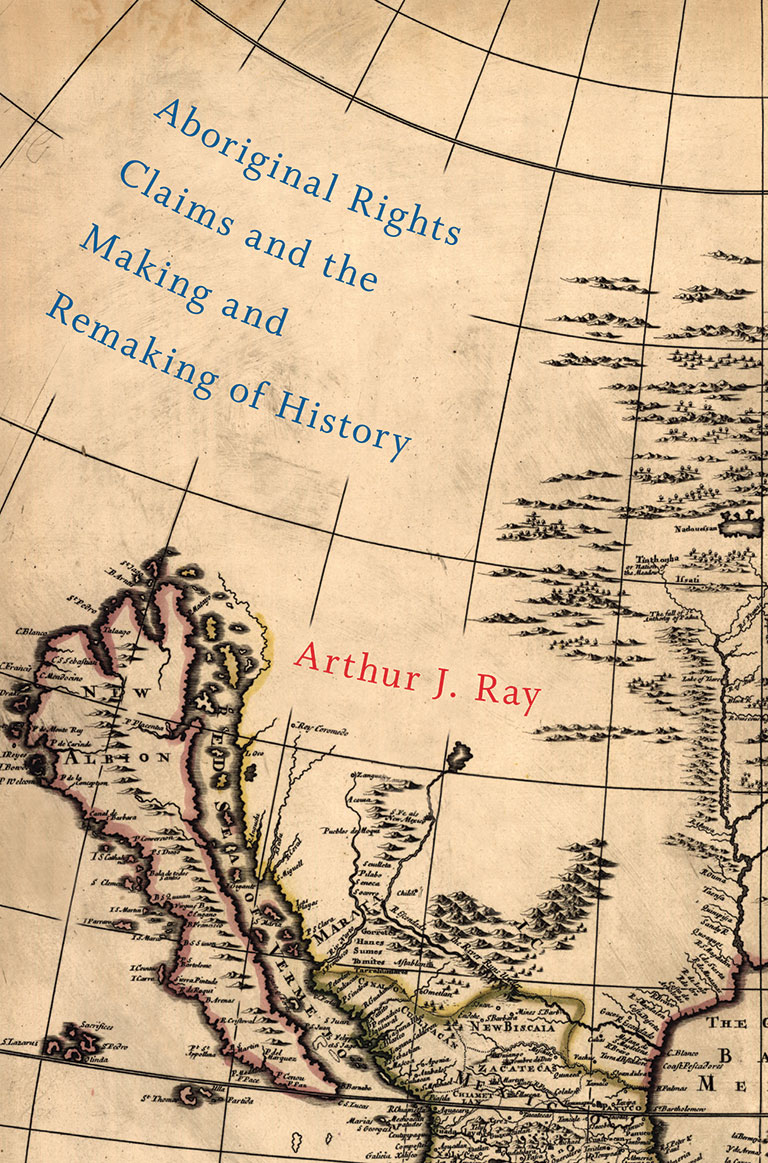Aboriginal Rights Claims and the Making and Remaking of History

Aboriginal Rights Claims and the Making and Remaking of History
by Arthur J. Ray
McGill-Queen’s University Press, 344 pages, $29.95
A double review with
Price Paid: The Fight for First Nations Survival
by Bev Sellars
Talonbooks, 239 pages, $19.95
In their respective books, Bev Sellars and Arthur J. Ray demonstrate how the Canadian historical narrative has excluded Indigenous perspectives to the benefit of newcomers while examining the subsequent reclamation of this space through the use of history.
Sellars, a lawyer, a former chief of the Xat’sull (Soda Creek) First Nation, and the author of the award-winning book They Called Me Number One: Secrets and Survival at an Indian Residential School, shares her experiences as a First Nations person living under the Indian Act in her latest book, Price Paid: The Fight for First Nations Survival. Inspired by her work with the BC Treaty Commission, Sellars writes from a personal point of view to offer Canadians an Indigenous perspective on Indigenous-newcomer relations in Canada. She begins Price Paid by asking readers to consider what they know about the creation of historical documents. She then presents a list of questions that support critical thinking and highlights how historical documents can preserve biases and support continued discrimination.
As Sellers explores the different stages of the Indigenous-newcomer relationship, she invites readers to consider the First Nations perspective by asking questions that frame each chapter. For example, before the chapter discussing first contact between European and Indigenous peoples, she asks, “What if you owned a house and beautiful garden? Would you share it with others? Would you welcome them?” Then, before the chapter discussing the process of newcomer settlement, she asks, “What if your guests decided to stay? Would it still be your house?”
Sellars’ book Price Paid shows that the intergenerational trauma of residential schools is not the only price Indigenous peoples in Canada have paid for welcoming newcomers.
In Aboriginal Rights Claims and the Making and Remaking of History, Ray presents a comparative study of the use of historical evidence in court proceedings regarding Aboriginal rights and treaty claims in Canada and other countries. Inspired by his experiences as an expert historical witness for the Aboriginal title suit Delgamuukw v. Regina, 1997, and for other legal cases throughout Canada, Ray explores the changes that have occurred both in legal systems and in historical scholarship.
A major legal change explored in this book is the relaxing of the hearsay rule, which made room for the acceptance of oral-history testimonies and the subsequent prioritization of Indigenous voices within legal proceedings. Ray goes on to explain how these changes affected the ways in which historians research and write history. He even explores the issue of revisionist history. Readers gain a basic understanding of how Indigenous rights and treaty claims have influenced both the courts and the study of history in different countries.
Themes associated with this article
Advertisement




